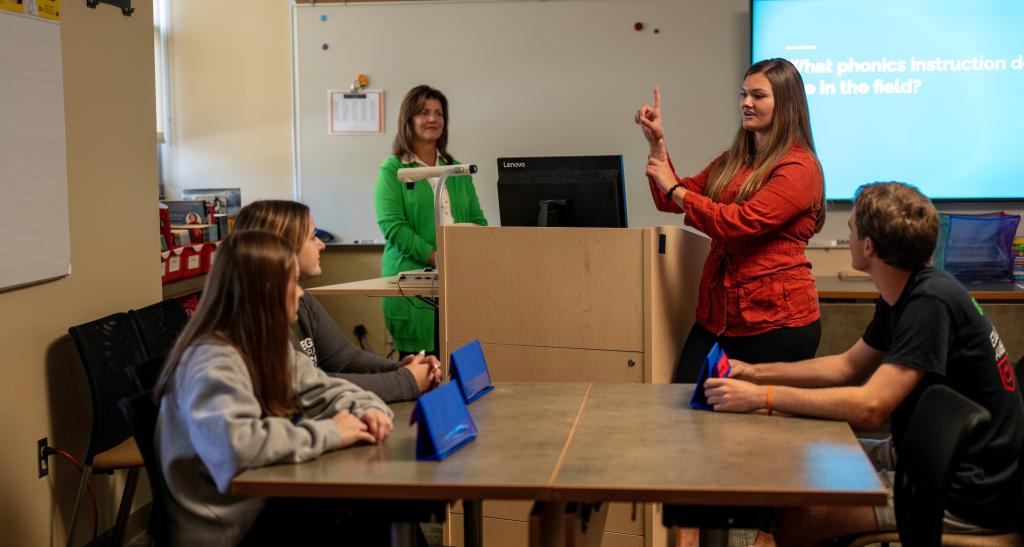Supporting York College Education Students
Students in a York College education degree program complete 190 hours of Field Experience work before embarking on their final semester — the Professional Semester, when seniors complete Student Teaching or an alternate program.
The Student Teaching experience provides the opportunity for education majors to put their knowledge and skills into practice in a real-world school environment. Cooperating Teachers invite these students into their classrooms, where students can learn more about the teacher's strategies and day-to-day work. As Student Teachers progress through their semester, they will be assigned a growing level of responsibility until they are prepared to manage a full day of classwork. Student Teachers will spend a minimum of two weeks maintaining full responsibility for the classroom — with four weeks requested for full-semester placements.
Cooperating Teachers will receive a stipend in appreciation of the time and effort they spend supporting York College education students.
Forms and Documents
Contact Us
Field Services
Amy Glusco
Director of Field Services
Appell Life Sciences Building, Room 104
Phone: 717.815.1454
aglusco@ycp.edu
Leah Kocoronis
Supervisor of Field Services
Appell Life Sciences Building, Room 105
Phone: 717.815.2095
lkocoron@ycp.edu
Davonna Rickard
Coordinator of Field Services
Appell Life Sciences Building, Room 103
Phone: 717.815.6439
drickard@ycp.edu


